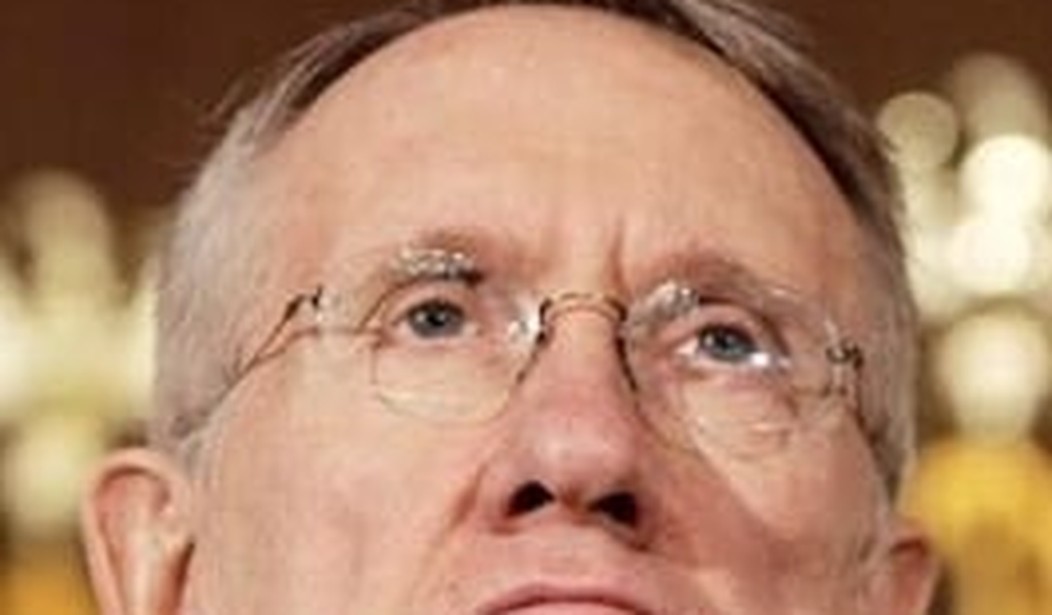WASHINGTON – To paraphrase the great Mark Twain, it appears the report about the death of the proposed Yucca Mountain nuclear-waste repository was an exaggeration.
In an unexpected move, the U.S. Circuit Court of Appeals has revived, at least temporarily, the prospects of storing the nation’s spent nuclear waste at a site about 90 miles northwest of Las Vegas despite what was thought to be a successful effort by Senate Democratic Leader Harry Reid, of Nevada, and President Obama to kill it.
The court ruled that the Nuclear Regulatory Commission, which oversees the handling of the toxic waste produced by nuclear power plants and smaller facilities, failed to follow the dictates of the Nuclear Waste Policy Act when it abandoned the Yucca Mountain project.
A three-judge panel held 2-1 that the NRC was “flouting the law” when it refused to conduct a licensure review on the project that has already eaten $15.4 billion and basically sat abandoned since the Obama administration cut off funds in 2010.
The court said the NRC must resume its review of the license application even though the $11 million remaining for that task is substantially less than what will be required to get the job done.
The Nuclear Waste Policy Act requires the NRC to investigate potential sites for a geologic depository to safely hold nuclear waste. Refusing to consider Yucca Mountain without substantiated reasons violates that law.
Reid, who has led the fight against the project aimed at his home state from the beginning, insisted that Congress will not appropriate more money in its behalf. He also maintained that Yucca Mountain will no longer be seriously considered despite the court ruling.
“As a result of a political compromise, we put some really bad judges on the D.C. circuit court and they produced a 2-1 decision requiring the Nuclear Regulatory Commission to license Yucca Mountain,” Reid said during an appearance before the Las Vegas Metro Chamber of Commerce. “Their opinion means nothing. Yucca Mountain is dead. It’s padlocked. There’s nothing going on there.”
But Rep. Fred Upton (R-Mich.), chairman of the House Energy and Commerce Committee, welcomed the decision, calling it a “clear rebuke” to the NRC’s failure to proceed.
“The Obama administration rejected the law and prematurely terminated the Yucca Mountain repository program but Congress and the courts have spoken out to prevent billions of taxpayer dollars and three decades of research from being squandered,” Upton said.
The main issue now, Upton said, is determining whether Yucca Mountain is safe for repository purposes.
“Ultimately, our goal continues to be the safe permanent storage of spent nuclear fuel, giving states and communities the certainty they need,” he said.
The NRC has not announced how it intends to handle the issue.
Dealing with nuclear waste is a longstanding problem for the federal government, which is legally obligated to collect the spent material from nuclear power plants across the country. The Government Accounting Office estimates the U.S. has more than 75,000 metric tons of nuclear waste on hand contained in 80 different sites in 35 states. The office estimates that amount will more than double by 2055.
Operators of nuclear power plants have sued the federal government for failing to provide for the management of nuclear waste as contractually required. The breach of contract has cost almost $3 billion and is likely to reach $20 billion if the government doesn’t accept used fuel by 2020.
Yucca Mountain was designated during the administration of President George W. Bush as the sole repository for the nation’s nuclear waste. It received congressional approval in 2002.
But the site drew opposition from environmentalists and some local interests in Nevada. Reid argued that the repository “threatened the health and safety of Nevadans and people across our nation” and insisted that it is “simply not a safe or secure site to store nuclear waste for any period of time.” He worked diligently to stop the project and in 2010 the NRC, under the direction of a chairman appointed by Obama, blocked the licensure review and the initiative seemed to be killed.
After grappling with the issue, Congress, acting at the request of the Obama administration, terminated the project in April 2012. In his budget request looking to kill the project, President Obama acknowledged that nuclear power is “an important source of electricity for many years to come and that how the nation deals with the dangerous byproduct of nuclear reactors is a critical question that has yet to be resolved.”
The nation, he said, “needs a better solution than the proposed Yucca Mountain repository,” hinting that any facility dedicated to holding nuclear waste must carry local support, which Yucca Mountain decidedly did not.
“When this administration took office, the timeline for opening Yucca Mountain had already been pushed back by two decades, stalled by public protest and legal opposition, with no end in sight,” Energy Secretary Ernest Moniz said. “It was clear that the stalemate could continue indefinitely. Rather than continuing to spend billions of dollars more on a project that faces such strong opposition” the Department of Energy decided to seek alternatives.
Sen. Ron Wyden (D-Ore.), chairman of the Senate Energy and Natural Resources Committee, and Sen. Lisa Murkowski (R-Alaska), the panel’s ranking member, have combined to address legislation to take another approach to the nuclear waste issue that might resolve Yucca Mountain.
The Nuclear Waste Administration Act of 2013 creates a new agency, the Nuclear Waste Administration, with a five-member independent oversight board to site and manage the government’s nuclear waste storage and disposal facilities, thus relieving the Department of Energy of the responsibility. The proposal requires that new agency to immediately begin identifying facilities for the storage of priority waste, which includes spent fuel from decommissioned nuclear plants and emergency shipments of spent fuel that present a hazard where stored.
Initially, storage would be temporary to allay safety concerns. The board is further required to find a permanent repository.









Join the conversation as a VIP Member